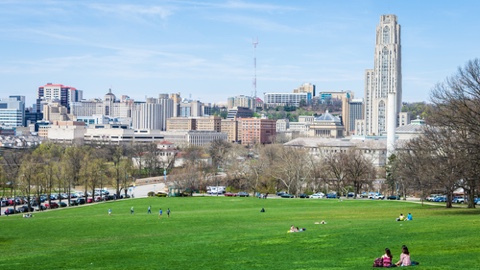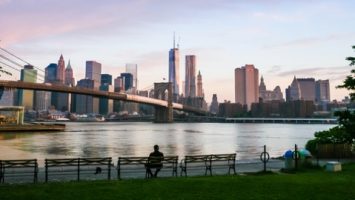
The Le Monde Smart Cities Global Innovation Award recently named Surtrac, a real-time traffic signal control technology from Carnegie Mellon University (CMU), the winner in the mobility category. The leader of the Surtrac project, Stephen Smith – research professor of robotics at CMU’s Robotics Institute – has licensed the technology and launched a spinoff company, Rapid Flow Technologies.
The Surtrac system – (Scalable Urban Traffic Control) – employs artificial intelligence and traffic theory to coordinate traffic lights at a number of Pittsburgh intersections based on actual traffic conditions, thus improving traffic flow, reducing average travel time by 25 percent, reduced idling time by 40 percent, decreased vehicle stops by 30 to 40 percent, and cutting air pollution by 20 percent. The software used allows the traffic signals to “talk to each other” and manage congestion in real-time.
In addition to Surtrac, Rapid Flow is also engaged in the development of ubiquitous Bluetooth AVI sensor network technology for Intelligent Transportation Systems (ITS) performance modeling and other applications through a Small Business Innovation Research (SBIR) grant from the U.S. Department of Transportation.
Surtrac is part of CMU’s Metro21 initiative that seeks to research, develop and deploy 21st century solutions to the challenges facing metro areas. It partners with the City of Pittsburgh and Allegheny County to utilize university resources to improve quality of life in the Pittsburgh region. Metro21 also represents CMU in the MetroLab Network that brings together 34 city-university partnerships focused on sharing and furthering innovative solutions to urban challenges.
“Our partnerships with the City of Pittsburgh, Allegheny County and government agencies have been instrumental to the success of Surtrac, RoadBotics and other university technology,” said Rick Stafford, executive director of Metro21. “Mayor Bill Peduto, County Executive Rich Fitzgerald and other local leaders have created an environment in which our researchers can deploy projects that help transform urban environments and enhance quality of life.”


